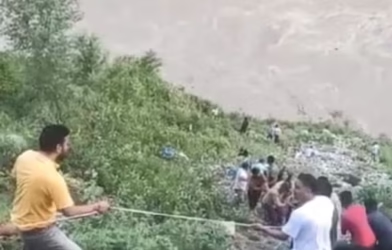The Human Rights Writers Association of Nigeria (HURIWA) has urged the Federal Government to declare a national emergency on the dearth of veterinarians and allocate substantial funding mechanisms in the agricultural sector to tackle this issue headlong.
HURIWA made this call in a press statement issued on Monday, following the report by the Institute of Agricultural Research and Training (IAR&T), Ibadan, Oyo State, that Nigeria is in dire need of more veterinarians to cater for its livestock population.
The statement, signed by HURIWA’s National Coordinator, Emmanuel Onwuniko, said that a nation with insufficient animal surgeons is just like a nation without medical doctors for humans since animals are strategic to the ecosystem and the survival of humanity.
HURIWA said that the hint by the research institute should become a focal point of the Federal Government and the National Assembly to address the lacunae holistically in the next budget cycle.
The statement also advocated for Federal Government fully funded scholarship for students of veterinary colleges, especially those specialising to become professional veterinary doctors.
“This is indeed a national emergency that requires urgent and pragmatic action from the authorities. We cannot afford to neglect the health and welfare of our animals, which are vital for food security, economic development, and environmental sustainability,” the statement read.
HURIWA cited examples of other jurisdictions in Africa and the West that have invested in veterinary education and services to enhance transboundary animal disease control and trade.
The statement referred to the African Association for Veterinary Education Establishments (2A2E-V), which was established in 2018 with the support of the African Union Inter-African Bureau for Animal Resources (AU-IBAR) to harmonise veterinary curricula and standards in Africa.
The statement also mentioned the Veterinary Services Grant Program (VSGP) in the United States, which provides funding for veterinary education, extension, training, and rural practice enhancement.
The statement further noted that veterinary education in Australia faces a sustainability crisis due to inadequate funding and urged the Nigerian government to learn from their challenges.
HURIWA appealed to the Federal Government to collaborate with relevant stakeholders, such as the Veterinary Council of( Nigeria (VCN), the Nigerian Veterinary Medical Association (NVMA), and the veterinary education establishments (VEEs) to develop and implement a comprehensive national veterinary policy and strategy.
The statement concluded by commending the IAR&T for its initiative in training 24 veterinary para-professionals in collaboration with the Food and Agriculture Organisation of the United Nations (FAO) and called for more support and recognition for such programme.












Comments are closed